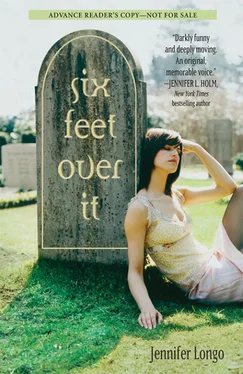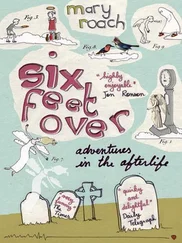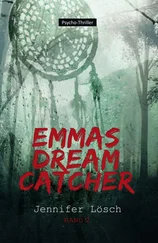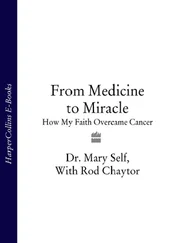Oh, man.
I half wish the Rivendell van would come back.
Two men climb from the truck, shuffle in, and sit heavily before me, and one of them says, “I need to bury my boy.” And then he huddles over his lap and begins to sob while I fantasize about other after-school jobs I would rather have.
That duck has cursed me.
This is At Need. At the Time of Need. It will be a single grave, single depth. The father chooses a bronze headstone that will feature the boy’s name, birth and death dates, and kind of a dumb poem the boy wrote last year, which at the time may have held no more significance than the obligatory fulfillment of a lame homework assignment but is now imbued with a sincere reverence. The boy is ten years old. Was.
Okay. This is the worst. Somewhere in the middle: old enough for people to really get to know him, young enough to not be a drunk-driving idiot.
While the men are occupied with their crying, I reach quietly into the bottom left-hand desk drawer where I keep my secret At Need stash of York Peppermint Patties and manage to get a fistful of them discreetly unwrapped and into my mouth. Desperate times.
The father and the other guy, the helper, go through the last half of the office box of Kleenex. It is a cube-shaped box with vivid sunset scenes, red and deepest orange on all four sides, black silhouettes of birds taking flight here and there. There are about a hundred more just like it in the supply closet. I make a mental note to ask Wade about getting some less depressing tissue boxes, my God.
Being witness to people’s unyielding anguish feels so intrusive, but lately I have had some measure of success avoiding sponging their agony and giving myself the voyeurism creeps by focusing on things like making guesses at the headstone choice (mostly granite) and being really detailed about the paperwork. I tend to offer tissues with my left hand, my right hand busy filling out forms and arranging graveside services. I keep the men talking, which suspends the crying and keeps things moving, because the sooner I can get them filled out, scheduled, and paid, the sooner they can go home and I can get back to Ovid. Because I have a quiz tomorrow.
And now the thing I almost hate the most: The Walk. To find a nice grave site. Between the stones, beneath what feels like millions of tall pines, I take shallow breaths, wipe my sweaty palms on my jeans, and keep my eyes straight ahead, never on the stones. I concentrate hard on getting this part over with, give the men general suggestions with the maps and my own personal opinion; for example, Sierra Sunset is badly named, as it faces east. (Everyone involved at the time knew this, but once he gets his mind made up, you can’t tell Wade anything.) Poppy Hill. Peaceful Glen. Serenity Valley.
Eventually it is decided that the ten-year-old will be taking his final rest in row M, space 22, halfway up Sunny Hill. (Perpetually shady. Seriously. Wade.) It has a decent view of the duck pond and is near enough to the gravel path so the grandparents can make the hike when they come visit, which even after just four months on the job I can tell you with absolute certainty they will. Maybe daily at first. They will hang wind chimes in the trees and cheap made-in-China dream catchers bought at Longs Drugs, which bear no resemblance to the actual Native American totems they are impersonating. They will heap the grave with flowers and letters and helium balloons, Monopoly boards open and set up for play, the top hat resting forever on free parking, ceramic bears with ceramic tears and sad faces who hold up signs reading “I Wuv You” and “Miss You Tons!” as if the kid has gone away to be a foreign exchange student for a semester instead of having died quickly but horribly from some ridiculous bone cancer they never even knew he had until a month before he died.
At Need.
They will picnic on the grave and talk to it, and after a couple of months they will come every week, then every six weeks, then every holiday, then probably only every Christmas or birthday, and after a while it will just be a grave.
At last we are back in the office.
In my book of maps, I fill in the boy’s name on the little rectangle representing his buried casket. I write in careful block print, in pencil, in case they change their minds. I double-check my math, and then the most gruesome part of all: I announce the total cost. I explain payment-plan options and full payment discounts. Nearly two dozen graves I’ve sold, mostly Pre-Need but even then it turns my stomach and feels remarkably like collecting for school fund-raising walk-a-thon pledges. The embarrassment of asking neighbors for donations in the first place, then the humiliation of knocking on doors to inform Mrs. Nerwinski: I walked three and a half miles, and according to your generous pledge of seventy-five cents per mile, that comes to a total of… “Two thousand, seven hundred dollars.” Standard lawn grave, At Need, single depth, cement liner, midweek graveside service, Wednesday’s Child Is Full of Woe, and the bronze headstone with five super-expensive extra lines of engraving. Dumb poem.
Thankfully, the helper simply pulls out a checkbook and fills one out for the entire amount. I accept it gratefully, my head ducked in humility. Thank you so much, Mrs. Nerwinski. I can assure you the entire student body really appreciates this. We’ll definitely think of you every time we have an assembly in our new multipurpose room.
They stand, and I stand. We shake hands. I step outside to watch them drive away past the Manderleys. In the pond the ducks glide, carving dark paths through moss clinging to water lilies. The sky is a million shades of deepening blue.
No one else comes in the rest of the afternoon, alive or dead. Not even close to being six, but the office is getting me down today. Could be the Emily-not-Emily girl. Or the tissue box. Or the dead ten-year-old. I drop Ovid into my backpack, unwrap two or ten Yorks for the walk to the house, and lock the door. If Wade docks my pay, I’ll throw him a parade. The stupid icing-on-the-cake money mortifies me. It only encourages the lie that my being here is an actual choice, but he insists I take the money, says he’ll get in trouble if I don’t. Likely. Every Friday I toss the cash into a shoe box beneath my bed. I hate it. Even though secretly I am beginning to appreciate the fact that it could eliminate the need to ever ask him and Meredith for things like school lunches or field trip fees, conversations routinely more painful than asking a client if they’d prefer to be on top or beneath their loved one in the event of a double-depth grave.
I hurry, eyes down, over the graves, through the trees—
“Leigh!”
Nearly to the house—
“Hey!”
Crap.
“Who’s chasing you?” Wade sticks his head out a window of the single-wide he keeps behind the mausoleum and the toolshed, metal siding glowing orange beneath the pines in the late-afternoon sun. This Shangri-la is being prepared for the arrival of an actual employee to replace contracted Jimmy, some unwitting person Wade plans on drugging or otherwise tricking into digging graves under the guise of “park maintenance.” He hopes to Arnold Palmer the situation by having the person live here, in the trailer: on hand for maintenance emergencies and providing what Wade refers to as “an extra measure of security.” Two in one!
Security against what, I’d like to know.
Wade is only resorting to this expense because after months of half-assing the running of the place with only my indentured servitude, he’s admitted at last that he’s going to need more help to half-ass it properly. All this time he’s been learning the lessons of: customers do not cotton well to graves dug in the wrong plots, or funerals double-booked or not booked at all even though families have shown up, grieving and bearing huge, expensive flower arrangements.
Читать дальше












